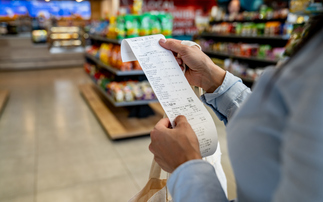Leading paper producer reveals how its high-profile zero deforestation strategy is seeking to embrace a 'landscape approach'
According to Greenbury, some foreign governments, while providing welcome funding, are similarly guilty of failing to appreciate the interconnected nature of effective forest management.
"We need to make sure all the funding from [the UK's] DFID and others is aligned with the strategy and actors in this part of the world to deliver zero deforestation," she argues. "It is starting to get better, but right now UK funding, for example, is channelled through NGOs in Indonesia and targeted at projects. Donor countries focus on delivering projects, but we see the key as delivering sustainable programmes. £5m to do a project for three years in South Sumatra is great, but then what? UK tax payers need to know that this money is spent in a sustainable way. We need more focus on the landscape level, more collaboration with the key players, and more transparency on where the funding goes and what deliverable is expected - UK taxpayers have a right to know that."
This focus on collaboration also extends to the companies that consume forest-based products around the world. "We would like all our customers to adopt zero deforestation as their minimum requirement in their procurement policy," says Greenbury. "They need to make sure they only purchase products that do not contribute to deforestation, but they also need to support this initiative. They need to prioritise zero deforestation products."
That may mean accepting that a premium of some sort needs to be paid to make effective forest protection a reality. "It is easy to create a policy, a big UK-based customer for example can create a policy for zero deforestation," she argues. "But if they then adopt a procurement policy based only on pricing then they are not really supporting zero deforestation. The priority should not just be on pricing, but also on the values behind the products."
Thankfully, some customers are starting to recognise that there can be commercial benefits to be gained from selecting products that do not contribute directly to deforestation. "Some of our customers are helping to support our landscape approach," reveals Greenbury. "One of our customers is basically doing it through their cost-related marketing. They only buy products from a zero deforestation company. They then put a logo on their products, promote them as zero deforestation, and a percentage of the sales goes direct to support our efforts to protect forests in Sumatra."
Greenbury is optimistic this kind of approach offers a simpler mechanism for funding forest protection than complex international schemes, such as the recently agreed UN REDD+ mechanism. "I think REDD+ needs to think out the box and use the power of the private sector more," she says. "Cost-related marketing can be linked more clearly to the protection of forest. If you put the logo on every pack of photocopier paper and let's say $1 goes to forest restoration and supporting the local community that will be directly felt in a way that a complicated mechanism like REDD+ might not be."
APP reckons it is ready for the next phase of its zero deforestation journey, it just needs more of the forests' many stakeholders to join with it in delivering conservation strategies that can work for everyone.
This article is part of BusinessGreen's Zero Deforestation Hub, hosted in association with APP.
BusinessGreen and APP will undertake a Twitter debate on how to make zero deforestation a reality at 2:30pm BST on Tuesday June 30th. Readers can join the debate alongside representatives from Greenpeace, The Forest Trust, Unilever and CDP.









